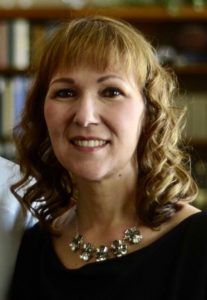
The Journey Begins
Each individual’s purposes and goals to pursue a doctoral degree differ. Educational practitioners in higher education uphold the distinguished honor of disseminating knowledge to a plethora of students at one time. Refining knowledge requires the experience of earning a doctoral degree and the appropriate credentials (Higher Learning Commission, March 2016). Completing an Education Doctorate degree at Winona State University, the first teacher college west of the Mississippi River inspires both noble and humble pride (“Winona State History,” 2019). Walking across the stage at commencement in two short years as part of the first doctoral cohort in the College of Education will be elating.
Higher Learning Commission, (March 2016). Determining Qualified Faculty Through HLC’s Criteria for Accreditation and Assumed Practices Doi: http://download.hlcommission.org/FacultyGuidelines_2016_OPB.pdf
Winona State History. (July 2019). Winona State University. Retrieved from: https://www.winona.edu/history.asp
Problem in Practice
Teacher shortage in the field of special education is a chronic problem (U.S. Department of Education, 2016). To address the need for licensed teachers, Alternative Routes to Licensure programs have been created (U.S. Department of Education, 2009). Attrition rates of alternatively licensed teachers after one year are 8% higher than traditionally trained teachers (Redding & Smith, 2016). In efforts to reduce attrition rates of alternatively licensed special education teachers, barriers need to be identified.
Redding, C., & Smith, T. M. (2016). Easy in, easy out: Are alternatively certified teachers turning over at increased rates? American Educational Research Journal, 53(4), 1086. https://doi.org/10.3102/0002831216653206
U.S. Department of Education, Office of Postsecondary Education, Teacher Shortage Areas: Nationwide Listing, Washington, D.C., 2016.
U.S. Department of Education. (2009). Race to the Top program executive summary. Washington, DC: Government Printing Office.
Research Questions
In the field of special education, hiring and retaining teachers is a challenge (U.S. Department of Education, 2016). An administration workaround is to hire teachers willing to enroll in alternative licensure programs (Brenner, Elder, Wimbish, Walker, 2015). To measure the factors associated with the retention rate of alternatively licensed teachers who stay in rural communities Creswell (2008) suggests the researcher write valid and reliable research questions that elicit deep and meaningful responses from participants. Three research questions emerge that may begin to address the retention of alternatively licensed special education teachers in rural communities.
RQ1: What tie alternatively licensed special education teachers to the community?
RQ2: What motivates alternatively licensed special education teachers to remain in current districts?
RQ3: How do alternatively licensed special education teachers perceive their relationships with administration and support staff?
Brenner, D., Elder, A., Wimbish, S., & Walker, S. (2015). Principal’s perception about alternate route programs in rural areas. The Rural Educator: Official Journal of the National Rural Education Association, 36(2), 38–46.
Creswell, J. W., (2009). Research design: qualitative, quantitative, and mixed methods approaches. Third edition. Los Angeles: SAGE.
U.S. Department of Education, Office of Postsecondary Education, Teacher Shortage Areas: Nationwide Listing, Washington, D.C., 2016.